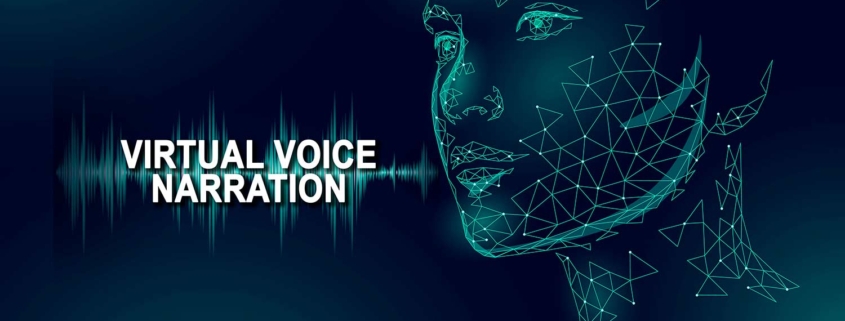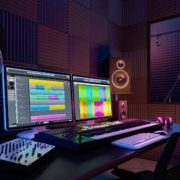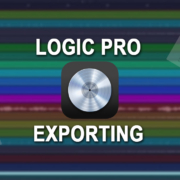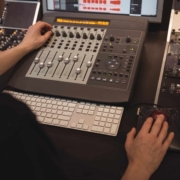Is Audible’s “Virtual Voice” audiobook narration here to stay? What can we expect next for the industry?
If you regularly purchase and listen to audiobooks, chances are you have used platforms like Audible and other similar websites in the past.
Audible is a leading platform that offers an extensive collection of audiobooks in various genres, allowing users to immerse themselves in captivating stories wherever they are. Until now 100% of the titles were narrated by professional voice actors while other platforms were implementing AI-voiced audiobooks.
As a professional audio production house with over two decades of experience, we have successfully produced numerous audiobooks. Our meticulous attention to detail is something we take pride in, as we understand that the process is a lengthy one.
With the introduction of AI-generated voices, the industry has been curious about when artificial intelligence voice-generated audiobooks would emerge in the market. From a technological standpoint, AI voice narration has always been an inevitability, and it has been something that has been right behind us.
AI-generated audiobooks are nothing new in recent years and have been available via Google Play and Apple. However, this was a small percentage of the market, and it was evident that the audiobook was generated by an AI voice. The production quality of these audiobooks was also relatively lower. Nevertheless, it remains a great option for authors who are just starting.
Fast forward to this month, and we have seen a surge of audiobooks labeled as “Virtual Voice” on Audible’s website. These audiobooks are narrated by AI voices and appear to be available to Kindle Direct Publishing (KDP) authors. This development caught our attention, and we felt compelled to write this article to keep you informed and provide updates as more details emerge.
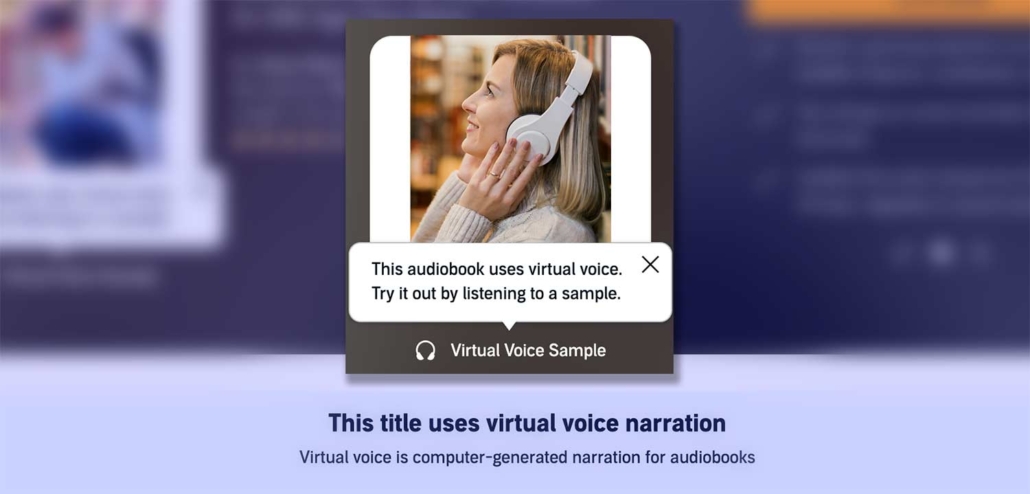 You can see a list of audiobooks with Virtual Voice narration on the Audible’s search page.
You can see a list of audiobooks with Virtual Voice narration on the Audible’s search page.
As of December 22, 2023, there is limited detailed information available. However, here are some findings:
- In early December, Amazon extended an invitation to several self-published authors to beta-test Virtual Voice.
- Audible’s website alerts the reader that these audiobooks are narrated by AI by labeling them as Virtual Voice.
- The opening of these audiobooks states that they are read by a Virtual Voice.
- There is currently no way to filter out audiobooks read by Virtual Voice on the website.
- The play button text on the audio sample indicates that it is a Virtual Voice.
- On the audiobook page, it states that the book is narrated by Virtual Voice. It’s included in Audible Plus and subscriptions.
- KDP authors can select one of their qualifying eBooks from the KDP dashboard and create a Virtual Voice for the book.
- Kindle Direct Publishing (KDP) will now test virtual voice-narrated audiobooks in the US.
- As of December 22, over 7,000 titles are narrated by Virtual Voice with the genre mostly being romance and erotica novels. This number is growing daily.
The introduction of Virtual Voice on their website suggests that it has been adopted, although it appears to be in beta testing at the moment. We can expect to see more developments in the coming months.
What does this mean for voice talents and audio production houses?

Image by: Freepik.com
We have been seeing the introduction of AI-generated content for audiobooks ramping up over the last couple of years. But, one thing we will say is that we didn’t expect the change to happen so rapidly.
While many outlets initially embraced the authenticity and human touch of real human narration, the unexpected speed at which AI has advanced has caught even the most skeptical by surprise.
One thing is clear, AI-generated content is here to stay, and we can anticipate the need to integrate it into the audio production industry.
What implications does this have for voice actors?
Traditional narrators and producers have valid concerns regarding the potential saturation of the market with AI-generated voice narration. This could have an impact on the perceived value and overall quality of audiobooks. Not to mention voice narrators who rely on recording audiobooks as their livelihood.
The future for voice talents and audio engineers who record, edit, and master audiobooks may be uncertain. However, one certain thing is the rise of AI Voice technology. It is already making significant advancements and is expected to continue growing.
The important thing is to adapt and recognize that voice talents still have opportunities to work and generate income. One such opportunity is utilizing an actor’s voice in AI and getting paid for it on audiobooks. This could be a glimpse into the future.
This shift presents a challenge to the industry: finding a balance that embraces technological advancements while preserving the artistic integrity and employment opportunities for voice talents in the audiobook landscape.
Can this be a good thing?
The answer is both yes and no. The introduction of AI-generated voice can indeed open doors for more authors to produce and deliver their audiobooks in a streamlined manner. However, it will undoubtedly bring about changes in the landscape.
Nonetheless, we remain hopeful and expect that larger publishing companies and established authors will continue to produce their audiobooks with human narrators, as they provide value and a personalized touch that cannot be replicated by AI.
Similarly, authors who opt to narrate their own audiobooks or have books with multiple characters will still need to undergo the recording process.
In the coming years, there is a possibility of implementing a hybrid process in the production of audiobooks. This process would make it easier for aspiring authors to post their books in audio format, offering them more options and opportunities.
Our goal is to make it simpler for people to share their work and creativity. However, it is equally important to appreciate the art of recorded audiobook content that is personalized and tailored to the listener’s experience.
Does ACX accept AI-voiced audiobooks?
Audible is now publishing AI audiobooks under the term “Virtual Voice,” but it’s important to note that ACX (Audiobook Creation Exchange) is the platform responsible for quality control and reviewing before publishing audiobooks on Audible submitted by publishers and authors. ACX is owned by Audible but operates independently. It has its own set of specifications for approving audiobooks before they are distributed through various outlets.
When we inquired with ACX about the potential acceptance of AI voices in the future, considering that Audible is now publishing Virtual Voiced audiobooks, this was their response:
Hello, Greetings from ACX,
AI narration is not permitted in ACX. You can review the requirements under the following link:
https://help.acx.com/s/article/acx-audio-submission-requirements
Even in this rapidly evolving digital age, the timeless appeal and authenticity of human-voiced audiobooks continue to be the standard feature of ACX and its expansive creative network.
While technology has advanced significantly, there is an undeniable connection that listeners form with a human narrator’s voice, lending a personal touch and emotional depth to the storytelling experience.
Key Takeaways from Audible’s “Virtual Voice”
It is noteworthy to highlight that the audio samples for the titles on the website/app may be in a virtual voice. However, the books themselves will be narrated by actual human voices, unless the narrator for a specific title is listed as Virtual Voice. Please note that there will be a mixture of real human voices and AI-generated voices.
In November, Publishers Weekly posted an article about the beta roll-out of Audible’s Virtual Voice.
Conclusion
Regardless of your stance, it is undeniable that we are living in a time of change and constant adaptation to AI technology. This presents an opportunity to transform books that may not have been voiced before into audiobooks for consumers. We must explore ways to integrate this landscape into the audio production industry, both in terms of services and the production process.

